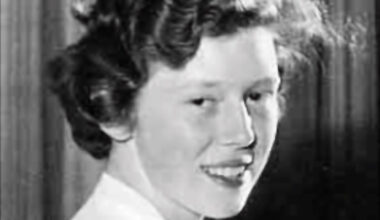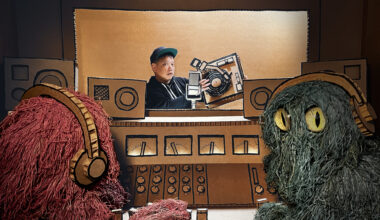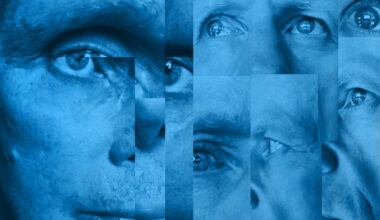From his time in 1970s reggae trailblazers Matumbi to his recent work with The Pop Group, Dennis Bovell is a man so steeped in dub that he can even make Joss Stone sound good. Production licks? He’s got ‘em
“People know I’m a sound snob,” says Dennis Bovell, his voice so deep it could oscillate fish to sleep. “When it comes to what’s audible, I do the right thing within the frequency range, to get the right sound. I try to find the sound that encapsulates the feeling of creation. It takes a lot of time. And I have that kind of patience…”
The 63-year-old producer, musician and songwriter, who has a canon of work that far outweighs his plaudits, is indeed a patient man.
“You need patience, especially when you’re working with people like Mark Stewart,” Bovell laughs, referring to his recent stint with The Pop Group on their techno opera ‘Honeymoon On Mars’. “But it was a pure joy and there were no moments when I thought, ‘Sod this, I’ve had it’. I don’t know how long that album took us, I wasn’t counting down the hours or watching the clock, but it was as exciting as a first kiss.”
Dennis Bovell has left his mark on just about every music genre there is. Much of his work lies in the tall grass waiting to be discovered, while hits like 1979’s ‘Silly Games’, which he co-wrote and produced for Janet Kay, are inescapable.
A member of trailblazing south London reggae outfit Matumbi, a collaborator with Linton Kwesi Johnson, and a solo artist under his real name and the alias Blackbeard, Bovell has been a go-to guy for the sonically adventurous for quite some time, whether they’re occupants of the leftfield or a mainstream name looking for an edge. With production credits for the likes of Marvin Gaye, The Slits, Fela Kuti, Steve Mason, Arcade Fire, Rihanna and Joss Stone among many others, he clearly thrives on the broad scope of work that his skills attract.
“Nobody goes to the same restaurant every day of their life, do they?” he says. “Enjoying different styles of music is akin to that. You’re feeding your soul, your innermost self. If you don’t like something, you turn it off or you simply don’t buy that record, but our tastes are largely a result of what we’ve been spoon-fed, or what has been given the green light, as well as that which has been suppressed. If you play anything enough on the radio, people will eventually hear what they like or dislike about it.”
Although he is most readily associated with dub and the 1970s UK reggae sound known as lovers rock, it’s often alt-rockers and pop stars who come a-knocking. His recent projects include dub reworkings of Steve Mason’s ‘Boys Outside’ and Joss Stone’s ‘Water For Your Soul’ albums. When he teamed up with The Pop Group last year, it was actually a renunion because he produced the Bristolian post-punk funkateers’ 1979 debut album, ‘Y’. And yet Bovell’s work on the rockier side of things is perhaps not that surprising when you consider how he had his ear turned.
“I was Jimi Hendrix’s number one fan,” he declares. “And I was slated by reggae people when I said the first dub I ever heard was on a Hendrix album in 1967. Listen to the track ‘Third Stone From The Sun’ on ‘Are You Experienced’. Listen to that record and you will hear no amount of echoes and dubs going on in the background. When I heard that in reggae I thought, ‘Eh, they must have heard that in Jimi Hendrix’! He was way before King Tubby. Tubby wasn’t doing dubs in reggae in 1967. As far as Hendrix’s effects go, the echoes and the detuning, that’s dub, mate. It wasn’t called dub then, but it was formed on the same principle. Check it out!”
Bovell, who moved to London from Barbados in 1965 at the age of 12, was such a fan of Hendrix that one of his early gigs was as a guitarist in the psychedelically inspired Stonehenge. The formation of Matumbi followed in 1971, the band eventually penetrating the charts with their 1976 cover of Bob Dylan’s ‘Man In Me’, which followed the proto-lovers rock stylings of ‘After Tonight’. It was during his time with Matumbi that Bovell took up sound engineer and production duties, with his group often providing backing to solo reggae artists such as I-Roy.
Many cite Dennis Bovell as one of the originators of lovers rock. He claims that the genre, which gave reggae a softer, sweeter, more obviously soulful slant, was skewed around the prominence of the hi-hat and snare, indicative of afrobeat. In fact, the king of afrobeat himself, Fela Kuti, was soon on the phone, due in part to the fact that Bovell was a successful black producer who actually owned his own recording facility, Studio 80. Kuti eventually took over the studio for three months solid, when a day or two would have been the norm. Kuti’s 1985 ‘Live In Amsterdam’ album was the result.

A pioneer from the start, Bovell was playing with tape loops from an early age, when he whipped a two-second instrumental break from Bob & Marcia’s ‘Young, Gifted And Black’ and looped it while mucking about in his high school’s recording studio. His father, whose Tropical Soundmaster sound system was a regular sight around the capital, provided further inspiration. Indeed, the young Dennis Bovell would later run his own sound system, Sufferer’s Hi-Fi, taking it to various parties and gigs, one of which resulted in him serving a six-month jail term in 1974 when he was wrongly imprisoned for riot and affray after a policeman was assaulted in a Cricklewood club. He was later released on appeal.
Bovell straddled the shifting tectonic plates of sound during an era of mass experimentation. Matumbi operated as part of Sufferer’s Hi-Fi at a time when dubplate culture was becoming massively influential in exposing the latest reggae tracks of the time in the absence of any significant form of radio airplay. When Matumbi split up in 1982, Bovell embarked on a period of intense activity, his name attached to work by the likes of The Slits, Bananarama, Ryuichi Sakamoto and Orange Juice, while also recording numerous projects as Dennis Bovell & The Dub Band and Blackbeard (check out ‘Brain Damage’ and ‘I Wah Dub’). Whether he was moving punk into the world of dub or finessing and pushing the low-end, as he’d done with lovers rock, he was considered a safe pair of production hands.
The Slits and The Pop Group both represented particular challenges for Bovell, yet he succeeded in improvising and harnessing sound within the already chaotic landscapes of both bands. The late Ari Up of The Slits was an infamously headstrong 17-year-old at the time and she wouldn’t allow Bovell to work on any of the group’s music without her being present, and yet Bovell’s ability to nurture and contribute to their sound without stamping all over it was greatly appreciated. As The Slits’ guitarist Viv Albertine told The Guardian in 2013, “Dennis corralled us into shape and tidied up all the ends, but without trampling on creativity. It was so rare for a man in the 1970s to put himself inside the heads and hearts of four crazy young women.”
The working relationship proved extremely fruitful. Some of Bovell’s improvisations on The Slits’ 1979 ‘Cut’ album included banging ashtrays with spoons and shaking boxes of matches. Bovell is still attracted to that magic.
“Some people only want you to get involved with their project because they want your name attached and so I frequently say no,” he says. “But then a band like The Pop Group comes along and I say, ‘Hello mate! Give us a listen’, and the recent experience was electric. Exciting as hell. Just like when we did ‘She Is Beyond Good And Evil’ back in 1979, which was one of the most sparkling tunes I have been involved with.”
The flip of ‘Beyond Good And Evil’, ‘3.38’, turned the A-side inside out like a sock so that the rhythm continues forwards as the rest of the music zips back. “No limits,” laughs Bovell.
These days, he can afford to be picky and although he is just at home dealing with Rihanna and Joss Stone as he is with Arcade Fire and Golden Teacher, he appreciates his time and space away from the studio.
“I try not to get too booked up these days, because I like to reserve time to replenish my body, soul and creativity. After 40 years of this, I’m more inclined to only get involved in projects that I think are going to be satisfying to the soul.”
Former Beta Band frontman and solo artist par excellence Steve Mason is clearly a case in point.
“Working with Steve was amazing,” says Bovell. “He’s a gem and a big reggae and dub fan. He imagined having his songs in dub and so I said, ‘Sure, let’s do a whole album as dub’. We took his ‘Boys Outside’ album and replayed all the basslines and the keyboard and piano lines, and we turned it into a reggae album called ‘Ghosts Outside’. This is how I like to work, otherwise you’re not making coffee, you’re making hot chocolate.
The aim is to rock the house with some explosive stuff!”
And talking of rocking the house, Bovell’s time with The Pop Group wasn’t just limited to the studio. He happily headed out on the road with them as their front of house sound engineer, recreating their tracks live.
“It takes the music away from the computer and frees it up a little,” he says. “It’s funny because I often get sound engineers coming over at gigs when I alter the frequencies. They see it as their territory. ‘Oi, oi, what are you doing?! What do you know?!’ they say marching towards the mixing desk. ‘Me?’ I reply, clearing my throat. ‘It was me who recorded the track in the first place, mate!’ Ha ha!”






